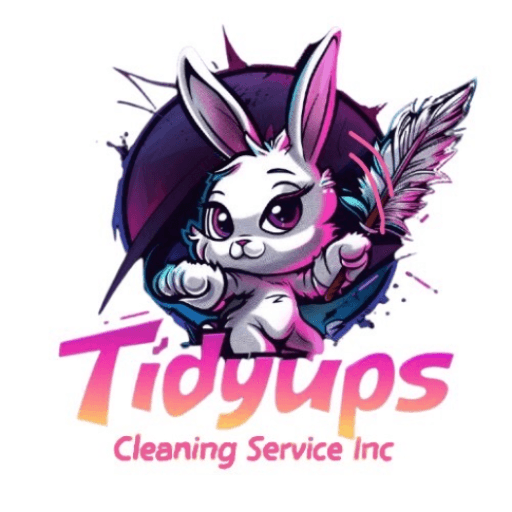Is Deep Cleaning Covered by Insurance
Deep cleaning services are essential for maintaining a healthy and inviting environment in both residential and commercial spaces. These services go beyond regular cleaning routines, targeting hidden dirt, allergens, and bacteria that accumulate over time. By employing a thorough approach, Tidyups Cleaning Service Inc ensures that every nook and cranny is meticulously addressed, leaving your space not only clean but also revitalized.
When it comes to insurance coverage, many clients wonder, “is deep cleaning covered by insurance?” The answer depends on various factors, including the specific terms of your insurance policy. Generally, standard homeowner’s or renter’s insurance may not cover routine cleaning services, but certain policies might offer coverage for deep cleaning in the context of restoration after a disaster, such as a fire or flood.
It is crucial to review your policy details or speak with your insurance provider to understand the extent of your coverage. Additionally, keep in mind that some deep cleaning services, particularly those that involve specialized equipment or hazardous materials, may require specific insurance provisions.
Understanding what your insurance covers can help you make informed decisions about investing in deep cleaning services. To learn more about how we can assist you in achieving a cleaner space and the insurance implications, visit our website to learn more and get your FREE Quote today! Click here.
Common Misconceptions About Insurance Coverage

There are several common misconceptions surrounding insurance coverage for deep cleaning services that can lead to confusion for homeowners and business owners alike. One prevalent myth is that all cleaning services, including deep cleaning, are automatically covered under standard insurance policies. In reality, most basic policies do not include coverage for routine cleaning tasks, and deep cleaning often falls into a different category.
Another misconception is that any damage resulting from cleaning services will be covered by insurance. However, if the damage occurs due to negligence or improper cleaning techniques, the insurer may deny the claim. It’s essential to understand that insurance primarily covers damages related to unforeseen events, not regular maintenance or cleaning.
Many individuals also believe that hiring a professional cleaning service guarantees coverage for any potential accidents or damages. While professional services, such as those offered by Tidyups Cleaning Service Inc, often have their own liability insurance, this does not mean that your personal insurance will cover any incidents that occur during the cleaning process. It’s advisable to check both your service provider’s insurance and your own policy.
Lastly, some assume that deep cleaning services are only necessary during specific situations, such as moving out or after a major event. In truth, regular deep cleaning can prevent health issues and maintain the integrity of your living or working space, making it a worthwhile investment.
Factors Influencing Insurance Coverage for Cleaning

When considering whether deep cleaning services are covered by insurance, several key factors come into play that can significantly influence the coverage provided. Understanding these factors is essential for homeowners and business owners alike.
Firstly, the type of cleaning service matters. Insurance policies often differentiate between routine cleaning and specialized deep cleaning services. Policies may cover certain elements of deep cleaning, such as damage resulting from a sewer backup, but not general cleaning tasks. Therefore, it’s crucial to clarify what is classified as deep cleaning under your specific policy.
Secondly, the insurance provider and the specific policy you hold can greatly affect coverage. Different insurers have varying definitions of what constitutes a covered incident. It’s important to review your policy thoroughly and consult with your insurance agent to understand the specific terms and conditions that apply to cleaning services.
Another influencing factor is the qualifications of the cleaning service. Professional cleaning companies that are licensed and insured may have a better chance of being covered by your insurance. Insurers often look favorably upon businesses that adhere to industry standards and provide proof of their own liability insurance.
Lastly, any pre-existing conditions or documented issues in your property can also impact coverage. If your home or office has a history of water damage or mold, for example, your claim could be affected if deep cleaning is needed to address these issues. Insurers may argue that the cleaning service should have been performed earlier to mitigate the problem.
Types of Insurance Policies That May Cover Cleaning

Understanding the various types of insurance policies that may cover cleaning services is crucial for homeowners and business owners seeking financial protection. Different policies offer varying degrees of coverage, making it essential to know what to look for.
One of the most common types is homeowner’s insurance. This policy typically covers damage to your property and may include provisions for cleaning after certain incidents, such as fire or water damage. However, it’s important to note that coverage for deep cleaning may be limited and contingent upon the cause of the damage.
Renter’s insurance is another option that may cover cleaning services, particularly if the cleaning is necessary due to a covered peril. Like homeowner’s insurance, renters should check the specific terms to understand what cleaning activities are included under their policy.
For businesses, commercial property insurance can provide coverage for cleaning expenses associated with damage to the business premises. This type of policy often covers losses due to theft, fire, or natural disasters and may extend to the costs of cleaning up afterward.
Additionally, liability insurance for cleaning companies can also play a significant role. If a cleaning service is deemed necessary due to liability claims, such as a slip-and-fall incident, this insurance may cover the associated cleaning costs.
Lastly, flood insurance and earthquake insurance can also impact cleaning coverage. If your property sustains damage from these natural disasters, the cleanup and restoration process may be covered, depending on your policy specifics.
How to File a Claim for Deep Cleaning Services

Filing a claim for deep cleaning services can seem daunting, but understanding the process can make it more manageable. Here’s a step-by-step guide to help you navigate the claim process effectively.
First, review your insurance policy to confirm that it covers deep cleaning services. Look for specific clauses related to cleaning after damage or loss and understand any limitations or deductibles that may apply.
Next, gather all necessary documentation. This includes photographs of the damaged areas, receipts for cleaning services (if you have already paid for them), and any relevant communication with your insurance provider. Detailed records will support your claim and provide evidence of the need for cleaning.
Once you have all the information, contact your insurance provider to initiate the claim process. You can often do this through their website, over the phone, or via email. Be prepared to provide your policy number and details about the incident that necessitated the deep cleaning.
After submitting your claim, an adjuster from the insurance company may be assigned to assess the situation. They will evaluate the damages and determine if the deep cleaning is justified under your policy terms. It’s crucial to be available for any questions or additional information they may require.
Finally, once your claim is approved, you will receive compensation for the cleaning services, either directly or through reimbursement if you’ve already paid for the service. Keep a record of all communications and documents related to your claim for future reference.
Tips for Choosing the Right Cleaning Service

Choosing the right cleaning service can significantly impact the cleanliness and atmosphere of your space. Here are some essential tips to help you make an informed decision:
- Research and Reviews: Start by researching local cleaning services and reading customer reviews. Look for a company with a strong reputation for professionalism and quality work.
- Services Offered: Ensure that the cleaning service you choose offers the specific type of cleaning you need, whether it’s deep cleaning, regular maintenance, or specialized services like move-out cleaning.
- Eco-Friendly Products: If sustainability is important to you, inquire whether the cleaning service uses eco-friendly products. This not only protects the environment but also ensures a safer living space for you and your family.
- Insurance and Credentials: Verify that the cleaning service is fully insured and bonded. This protects you from potential damages or theft during the cleaning process. Additionally, check their credentials and training programs for staff.
- Flexible Scheduling: Choose a cleaning service that offers flexible scheduling options to fit your busy lifestyle. Whether you need weekly, bi-weekly, or one-time services, they should accommodate your needs.
- Transparent Pricing: Look for a company that provides clear and transparent pricing. Avoid hidden fees by asking for a detailed quote before services commence.
With these tips in mind, you can confidently select a cleaning service that meets your expectations and requirements. Visit our website to learn more and get your FREE Quote today! Click here.
